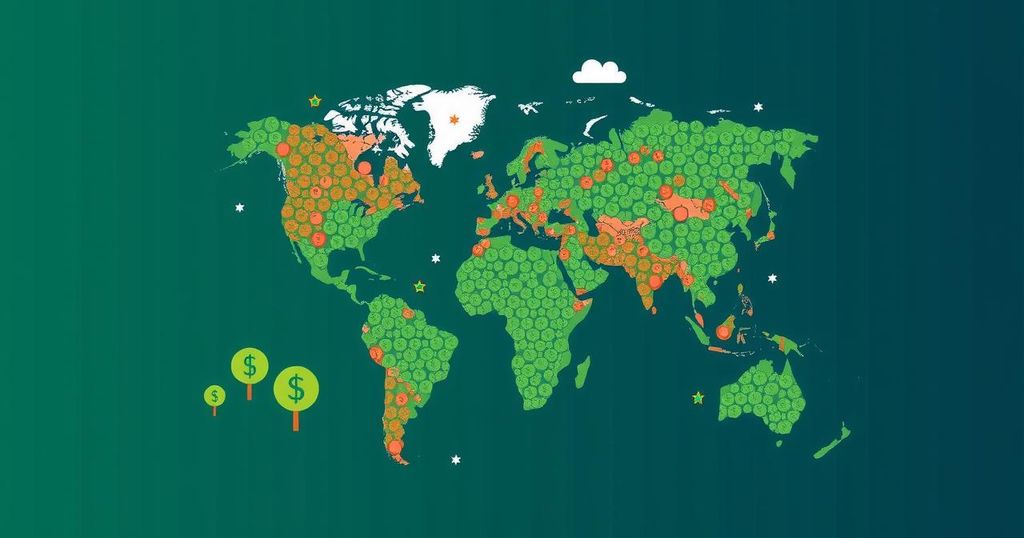At COP29, India rejected a proposed $300 billion climate finance package, calling it insufficient compared to the $1.3 trillion requested by the Global South. The Indian representative, Chandni Raina, expressed that the proposal does not consider the needs of developing nations and highlights a lack of commitment from developed countries. This sentiment garnered support from Nigeria, Malawi, and Bolivia, stressing the need for more robust financial backing to address climate challenges effectively.
At the recent UN climate conference, India decisively rejected a proposed climate finance package amounting to $300 billion annually for the Global South by 2035, deeming it “too little and too distant”. This amount is significantly lower than the $1.3 trillion that developing nations have sought over the past three years. Chandni Raina, representing India as an Adviser in the Department of Economic Affairs, expressed discontent with the negotiation process, asserting that it stifled the voices of countries in need of support and undermined their trust in the conference proceedings. She articulated that the package fails to address the pressing needs of developing nations and contradicts the principle of Common but Differentiated Responsibilities, highlighting that India considers the proposal unacceptable in its current form. This sentiment of disappointment was echoed by Nigeria, with further expressions of agreement from Malawi and Bolivia. Raina underscored the urgency for developed nations to uphold their commitments, emphasizing that climate transition efforts for developing countries must not come at the cost of their economic growth. Overall, the discussions revealed a substantial disparity between the expectations of the Global South and the proposals put forth by developed nations during the climate negotiations.
The climate finance negotiations are critical, particularly for developing countries that are disproportionately affected by climate change. The principle of Common but Differentiated Responsibilities (CBDR) is a key tenet in international climate agreements, emphasizing that different nations have varying responsibilities in addressing climate change based on their capacities and contributions. Despite long-standing expectations, the proposals presented often fall short of the financial requirements articulated by less developed nations, including the recent demand for $1.3 trillion. Understanding this backdrop is essential to grasp the profound discontent voiced by India and other nations regarding the inadequacy of the proposed financial mechanisms during the COP29 negotiations.
In summary, India’s rejection of the $300 billion climate finance package at COP29 highlights the ongoing frustrations of the Global South regarding inadequate financial commitments from developed nations. The concerns raised regarding the fairness and transparency of the negotiation process reflect deeper challenges in global climate governance. The insistence on meeting the anticipated financial demand of $1.3 trillion underscores the urgent need for comprehensive support to facilitate climate adaptation and transitions in developing countries without compromising their economic growth.
Original Source: swarajyamag.com






